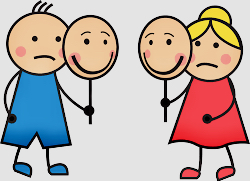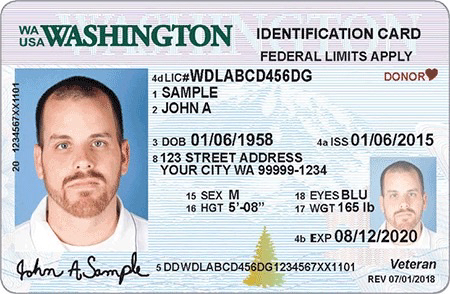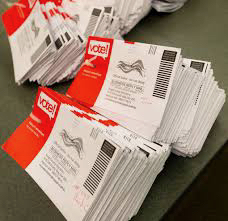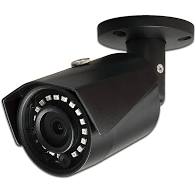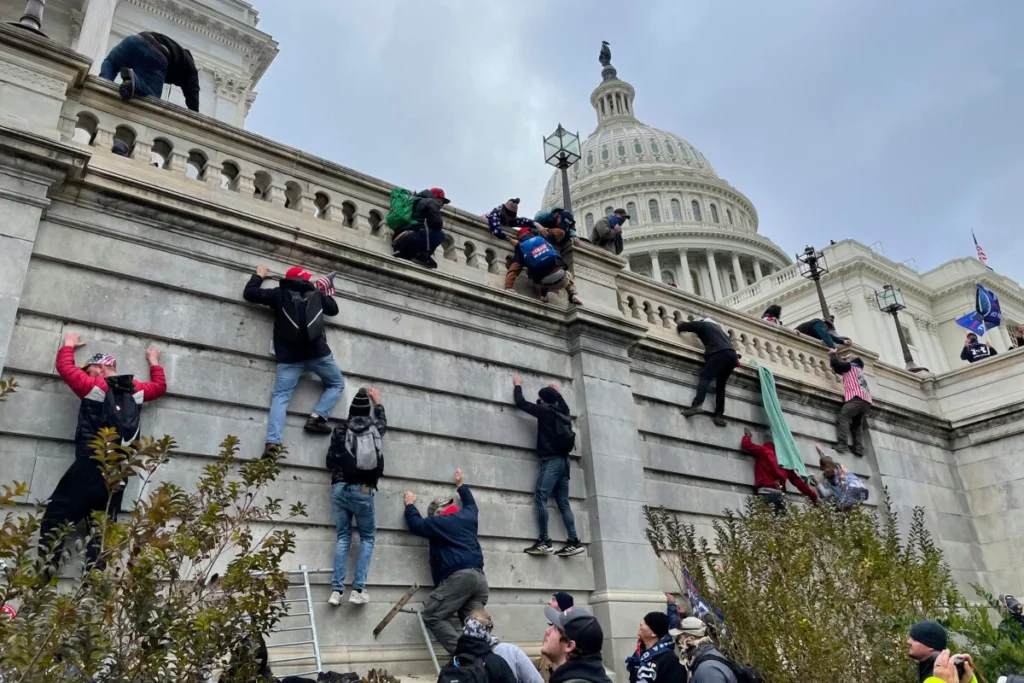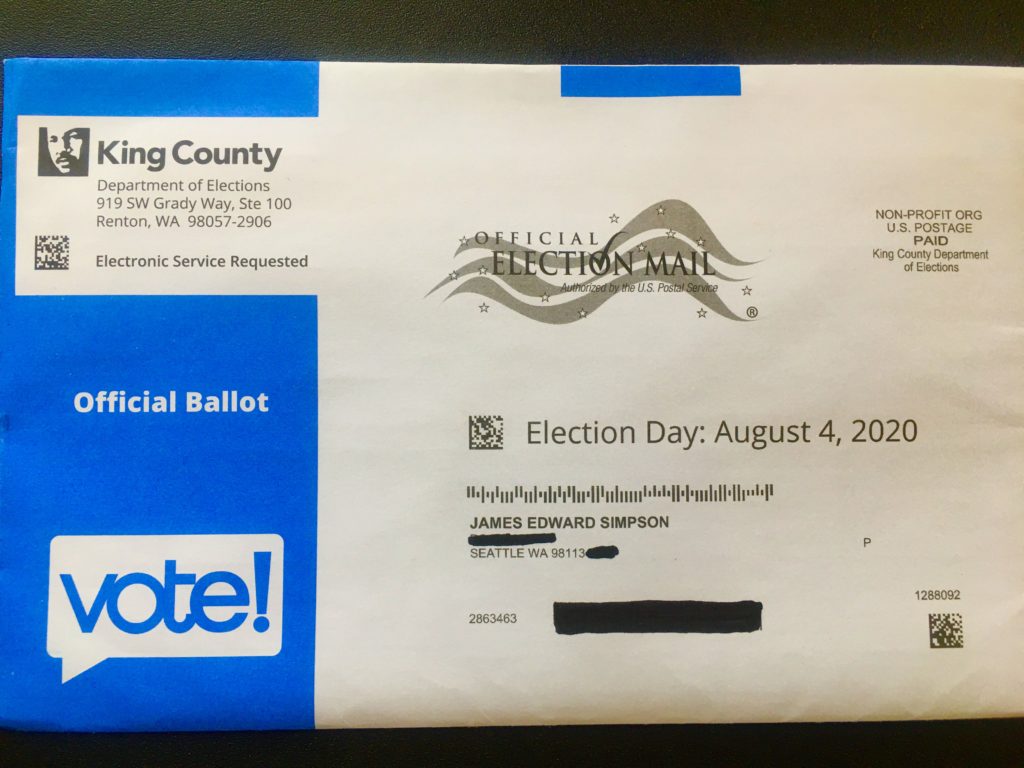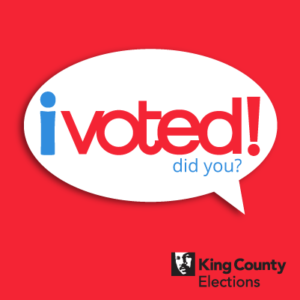I am bothered by a pronoun I see and hear used a lot recently in both person-to-person conversations and in on-line discussions, “Them.” Another problem word is the closely related subject pronoun, “They.”
As pronouns, these two words relate to plural nouns such as a word like “Presbyterian” or “Canadians,” used to describe members of an identifiable group.
I am bothered by the way “They” and “Them” are now being used indiscriminately to ID people one hates or fears.
“Them” and “They” can be wielded without having any regard for the truth.
These words are being used to create a false binary choice (e.g. “My way, or the highway”).
The use of “They” or “Them” allows one to broadly assail anyone who the user does not agree with on virtually any issue.
The improper use of “Them” or “They” is yet another way in which Americans are being pulled apart.
I have seen “They” or “Them” used by extremists from both the far left and the far right. More recently, I have even seen these words used by people who have seemed to me in the past to be open to differing viewpoints.
EXTREMISTS HAVE NO SHAME
Extremists will use any means to tear us apart.
Where do you live? Where do “They” live?
Friends have talked about the differences between Red States and Blue States. Depending on the individual’s prejudices, either “Red” or “Blue” is often simply categorized as being either all good or all bad.
Examples include, “They want to have a socialist government” or, “They just want to scare people by carrying guns openly in public.” The population of the entire state? Really?
I challenged one friend to tell me if Pennsylvania was a Blue or a Red State. I got no response. Of course it was a trick question because Pennsylvania has elected politicians from both parties and power within the state is clearly balanced between the two political parties with a large segment of adults, about 30%, who sit out the democratic political process and don’t even vote.
There is clearly a divide between rural and urban counties in virtually every state. However, even where we live much of the time, in mostly rural and staunchly Republican Adams County, Pennsylvania, one can find real live Democrats.
Go into the Ragged Edge Coffee Shop in Gettysburg on Tuesday mornings and you may well find a group of aging hippies loudly and publicly announcing very progressive stances, right here in the middle of what some might call a “Red” county.
Likewise, in Seattle there are arch conservatives and even some domestic white nationalist terrorists. Don’t believe this, just listen to Seattle conservative radio talk-show host Jason Rantz for a few minutes, you will get the idea.
In either location, or for that matter any location, it is a gross overstatement when talking about an entire population to say, “They just want to (fill in the blanks).”
Extremists use “They” or “Them” to categorize entire groups. But they don’t stop there. To further pull us apart, they use even more inflammatory phrases than just “Red” or “Blue.”
To really add shock value, these extremists use phrases such as, “woke bleeding-heart tree-hugging libtards,” or, conversely, “ignorant mouth-breathing racist redumblican trumpanzees.”
Using “Them” or “They” allows one to cast blame broadly without being tethered to any facts or personal knowledge of what an individual believes, much less who these people really are and what they actually do.
I have seen right wing users link gun control legislation directly to Chinese efforts to invade the US, as in, “Why do you think “They” want to take away our guns.?
Other right wingers have said things like, “They” just want something for nothing and “They” do not want to work. “They hate America and our way of life.”
Lefties can use this tact also as in, “They are supporting Big Money interests bent on keeping the common people in their place.” Too many people try to explain something complex by saying that, “they are really all just racists.”
“They” want to avoid taxes in order to keep wealth they have unfairly garnered from others.” Or, “They” are all gun-crazy racist lunatics who want to intimidate others.”
Worse yet, the use of the word “They” allows the user to conflate a number of issues or ideas and focus anger that in some cases is not warranted. This allows dispersions at an unspecific “They” or “Them” which is used to describe anyone who disagrees with the user on virtually any issue.
FUZZY THINKING
Psychologists use the term Fundamental Attribution Error to describe the tendency for people to under-emphasize situational and environmental explanations for an individual’s observed behavior. People often over-emphasize dispositional and personality-based explanations.
A simper way to describe this is the tendency to believe that what people “do” necessarily reflects who they “are.” This thought process overlooks and/or discounts the circumstances that may lead to the “Why” which often tells a lot more about what is really going on.
When we use phrases like, “They are all (lazy, racist, war mongers, tree huggers, or fill in the similar character assumption)” statements, we are making the Fundamental Attribution Error.
We often assign fundamental character faults to explain the actions of others while giving ourselves a pass for exactly the same action.
For example, when someone else is late for work it is easy to say “they” just don’t care about their co-workers. And yet, when we are sometimes late ourselves, there is always a good reason.
CANCEL CULTURE
I believe this discounting of the circumstances and not focusing on facts leads directly to the practice of simply identifying a person as either a “They” or “One of them.” Disregarding circumstances and details also more easily leads to cancel culture.
Cancel culture is total rejection of anyone who disagrees with the expected actions or beliefs of their “tribe.” This is true for the right as well as the left. Just ask Republican Representative Liz Cheney, quarterback Colin Kaepernick, writer j. k. Rollins, or Natalie Maines, lead singer for the Dixie Chicks. Each of these well known people has been berated and chastised by members of their own “tribe” because they have not strictly conformed to a set of behaviors and ideas that are expected of them.
Step out of the line with an idea some extremists don’t like and you may find yourself banned. One can be banned even from groups they were once a part of or even revered by. One can quickly become one of “Them” by expressing an idea or acting in a way that is different than what is expected by their tribe.
Extremists on all sides engage in what we now call cancel culture as in, “ If you don’t ascribe closely to all of my agenda you are, “one of “them”.”
JAIL THE GUILTY BASTARDS
Don’t get me wrong, there are clearly assholes on all sides of virtually any issue that divides us. I am in no way suggesting we refrain from calling these jerks out.
In some cases they should be jailed. My concern is that we tend to paint everyone with the same brush without a serious consideration of the circumstances and facts. The details matter.
We build straw men who are easy to hate, then lump them into the whole and automatically assume “they” all condone the actions of this obviously wrong straw man (or straw woman).
AN EQUAL OPPORTUNITY OFFENDER
Phrases used by both the left and the right include:
“They” want to take over the U.S. by means of force.
“They” want to take away our liberties.
“They” don’t care about the people, especially those of us who work for a living in the middle class.
“They” just want power for themselves.
“They” don’t care about the Constitution.
“They” lie.
“They,” are haters.
Depending on who is using the word, “They,” we can include any of the following: as “one of them”: Joe Biden, Donald Trump, Nancy Pelosi, Mitch McConnell, Bill Gates, The Koch Brothers, The Russians, The Chinese, the Israelis, the Palestinians, “Hollywood”, “Red necks”; Evangelicals, Atheists, Proud Boys, or Antifa. For that matter almost anyone who is wealthy, famous, powerful or happens to be on TV is subject to being “one of them.”
FIND SOMEONE EASY TO HATE
Typically the user of the word “They” will identify some specific issue that is of concern to that person. Then the person will identify one well-known person or celebrity who is opposed to the user’s position and has made some outrageous statement or done something obviously wrong. The clearly assumed position is that all persons who disagree with you on any number of other issues automatically ascribe to that statement and condone the actions of this person.
Right wing people will pull up some obscure statement by a “celebrity” like Barbara Streisand and declare, “see, that is what “they” all think. “
Lefties pick certified religious extremists like Franklin Graham (also accused of weird sexual activity) and then say, “see, “they” all think the same way as Franklin Graham and do not really want religious freedom, they just want everyone to buy into their views on religion.”
In many cases the condemned statement being quoted may have pulled out of context. The statement can also be twisted something like, “They” just want so and so and then, “They,” will only be happy when “they” can…(fill in the blanks).’
HERE ARE MY RECOMMENDATIONS:
A partial solution would be to forego using the words “They” or “Them” altogether and then either substitute the name of someone who has specifically supported an idea or position or done something you don’t like. Stick to the facts.
Use “I” when talking about our own positions and use the word “we” when talking about someone who disagrees with you in part but with whom you want to find common ground.
Examples: “I” vs “We” statements
““I” believe that we need to limit access to guns for certain individuals, like felons, terrorists and the mentally deranged.” Or conversely, “”I” want to be sure that my right to bear arms is not taken away.”
“We” need to find ways to ensure that all law-abiding citizens can “bear arms” to protect themselves while at the same time keeping guns out of the hands those who are most dangerous and who should not have access to guns.”
“I think the system is not fair to certain individuals.”
“We need to work together as citizens to ensure that working class people have an equal chance to succeed based on their own merits.”
“I” am convinced that elections are vital and conducted fairly or conversely, elections are not fair because some people keep others from Voting, or conversely people who are not quailed to vote are voting.”
“We” need to work together to identify means to make sure elections are conducted fairly while at the same time ensure that all citizens have an equal opportunity to vote.”
Remember, “we” doesn’t mean people who agree with you – it includes those with whom you disagree. “We” need to find common ground.
Also, drop the use of memes. Memes are the worst. Try not to use them.
Yes, occasionally an idea will be very well articulated in a meme, but often quotes are mis-identified and the factoids are overly simplistic.
Also, I really don’t want to see a meme you send to me, I want to know what You personally think and believe.
After all, blindly forwarding a contentious meme is just what “They” want.
Note: To respond with your thoughts click on “Comment” below. Then scroll to the bottom where you can leave a reply. If that does not work, you can send a response to my e-mail and I can post your response – sorry, somehow the “Leave a comment” option is not visible anymore.
